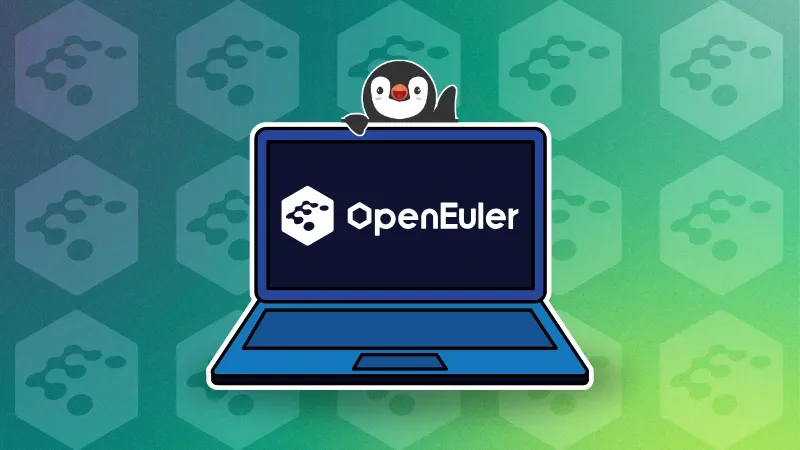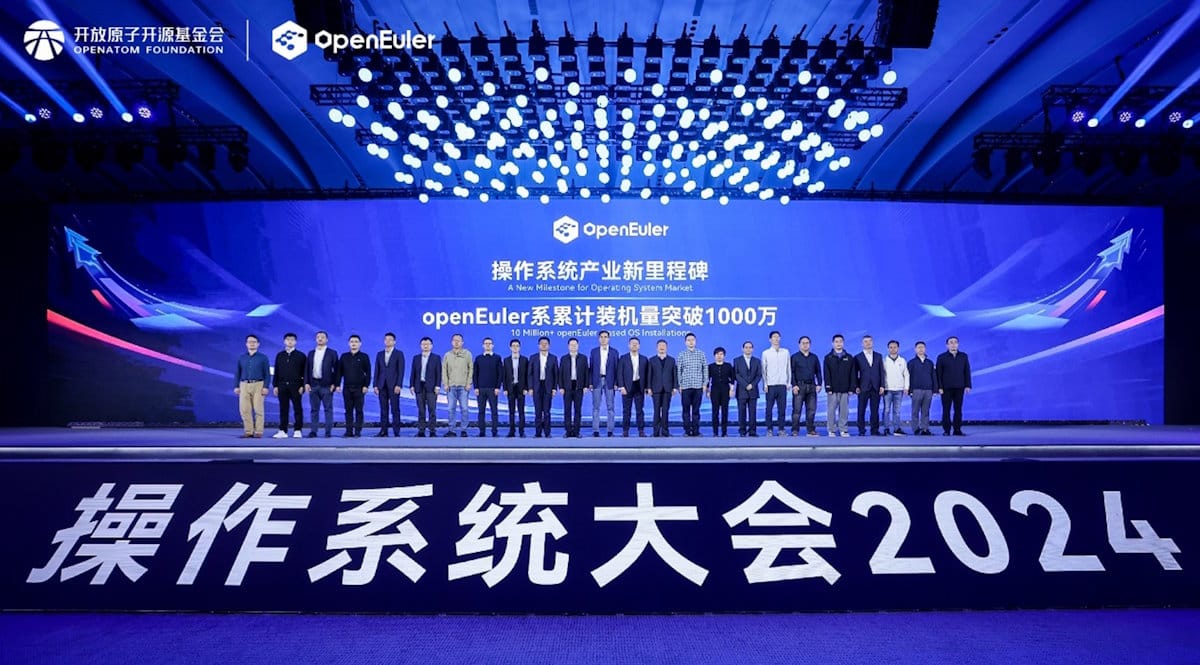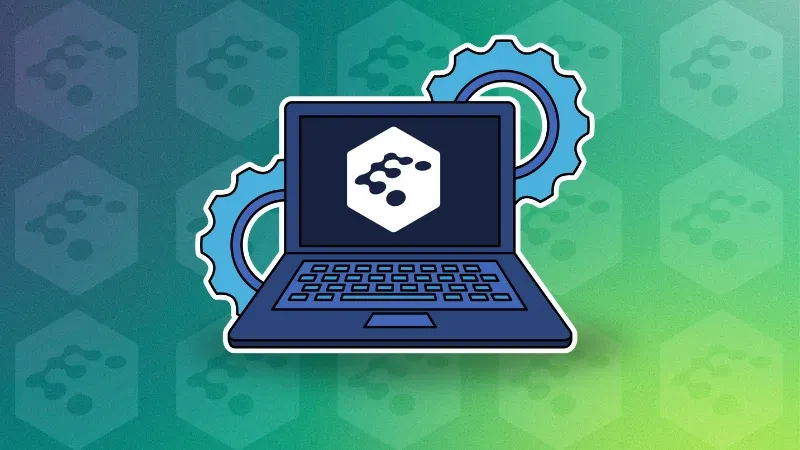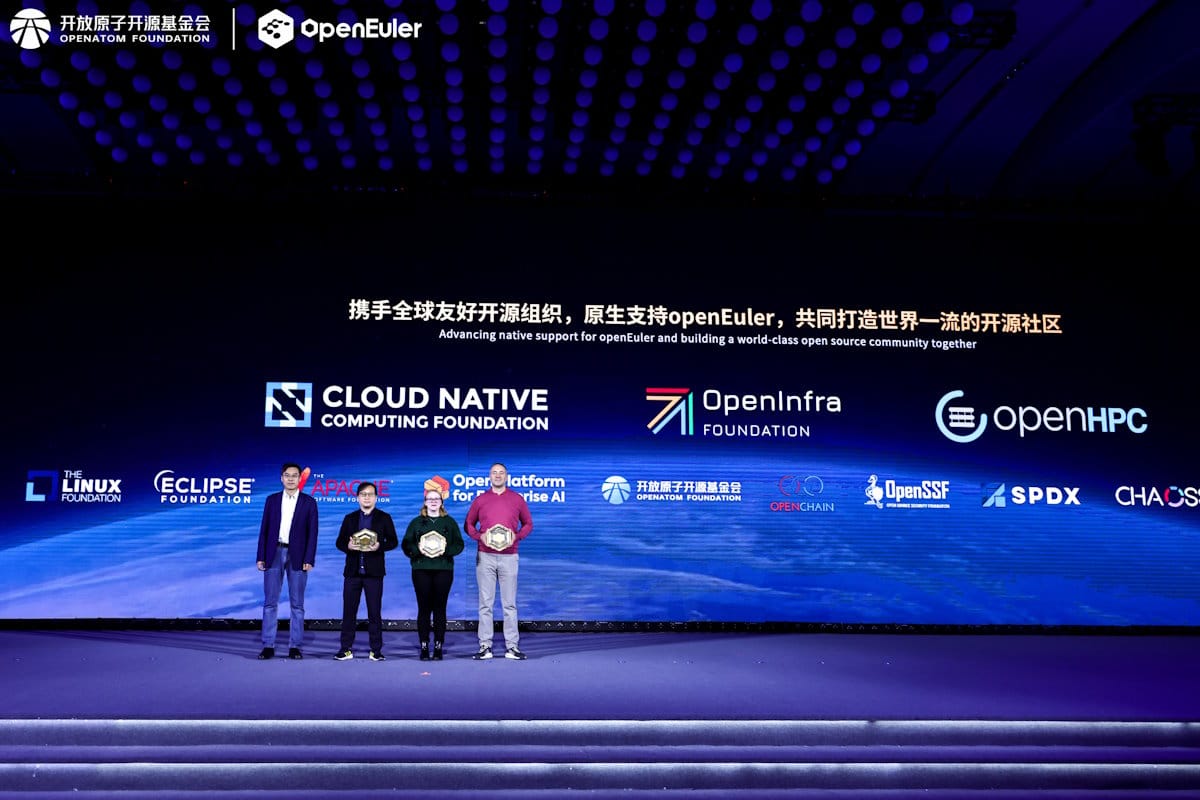
If you have been following us, you probably know that openEuler Summit 2024 was all about open source AI computing.
To get you up to speed, openEuler is an attempt from OpenAtom Foundation to present an open source operating system ready for day-to-day usage, servers, embedded/IoT devices, and cloud.
In the summit, they revealed their plans to utilize the platform to enable devices for AI use-cases. Not just limited to AI applications, but also enabling developers to build AI solutions using the openEuler Linux distribution.
With the conference concluded on November 16, I highlight the important bits of what they have announced.

Also, if you are bored with Red Hat's approach to things, and want a fresh perspective (and a competitor to it), you can learn more about openEuler via our guides:

10 Million+ Installations for openEuler So Far

For most of us, openEuler is fairly new. However, it has been working towards the current goals for around five years now.
As per its official claims in the summit, they mention a total of more than 10 million installations, with five million of them in 2024 alone.
It has been powering applications across industries that include telecommunications, the Internet, and finance. And, they aim to promote more international collaborations and explore globalization of open source projects to step up openEuler's goals.
Using AI Innovation to Improve Digital Infrastructure

While most of the tech tries to harness the power of AI, openEuler does not plan to sit back.
In the conference, openEuler says that they will continue advancing core kernel technologies, enabling heterogeneous computing convergence, improving diversified computing efficiency, and boosting model training and inference performance.
Well, that is a lot of jargon for the end users. But, it is good to see that their focus is on niche technical improvements rather than gimmicky AI features for the operating system.
New Upcoming openEuler 25.03 Release
At the present, we have openEuler 24.03 LTS release, and a 24.09 (non-LTS) ISO.
And, if you want to install openEuler, we already have a tutorial for it:

To take the offering further, they have announced the plan to release openEuler 25.03 (it could be an LTS release) in March 2025.
The update will focus on making the operating system more user-friendly for developers, and upgrading its infrastructure.
Unveiling openEuler AI Confidential Computing Solutions
The 2024 summit marked the official launch of openEuler AI confidential computing solutions, which enable communities/organizations to build secure computing environment for model training and inference across multiple architectures.
Considering privacy of data is at the forefront, an initiative to focus on that is a good move.
Plans for Closer Collaboration to Build a Global Open Source

As per the official stats, the openEuler project involves over 2000 contributors from 43 countries and regions.
With its collaborations, it revealed that it has managed to gain native support from projects like OpenStack, Ceph, Spark, OpenCV, and formed partnerships with notable organizations like The Linux Foundation.
openEuler is currently available on major cloud platforms, including AWS.
To take that further, openEuler has added new enterprises including Arm, Baidu AI Cloud, and more as new community members. Among new partnerships, CNCF, OpenInfra, and OpenHPC are three new open source foundations joining the openEuler community to offer native support for it.
Wrapping Up
openEuler seems to be heading in the right direction, facilitating collaboration and incorporating open source philosophy.
With its roadmap for the near future, the openEuler platform seems promising, giving users/organizations a new option that focuses on AI computing along with all the other essentials.
💭 What do you think about the highlights of the openEuler Summit 2024? Share your thoughts in the comments!
- Even the biggest players in the Linux world don't care about desktop Linux users. We do.
- We don't put informational content behind paywall. Your support keeps it open for everyone. Think of it like 'pay it forward'.
- Don't like ads? With the Plus membership, you get an ad-free reading experience.
- When millions of AI-generated content is being published daily, you read and learn from real human Linux users.
- It costs just $2 a month, less than the cost of your favorite burger.
Become a Plus Member today and join over 300 people in supporting our work.










